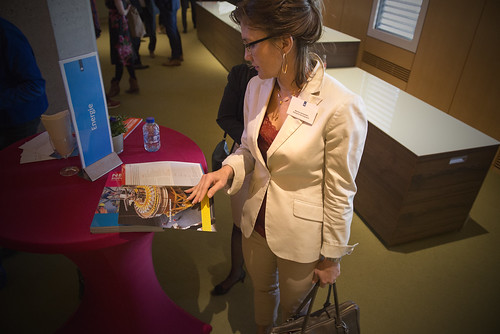Why the real ASEAN action happens on the sidelines
ASEAN #ASEAN

Tuesday saw business roundtable discussions being held on agriculture and food supply chains, the digital economy, education and skills, the green energy transition, financial services, infrastructure, connectivity and resources.
Trade Minister Don Farrell kicked off proceedings and Nicholas Moore presented his Invested 2040 report, which forms the blueprint for Australia’s economic strategy in South-East Asia for the next 16 years.
Singapore Prime Minister Lee Hsien Loong with Anthony Albanese. The Age
This report presents a serious amount of work and is key to underpinning the Australian government’s engagement in the region.
Moore urged Australian business leaders to drive this engagement.
Building trust through interpersonal connections between Australian businesses and ASEAN communities is key to building Australia’s opportunities in a region that will become the world’s fourth-largest economy by 2030.
At the CEO Forum lunch we heard from Prime Minister Anthony Albanese that his focus on ASEAN is being underpinned by big investments in the region to facilitate two-way trade, which will no doubt bring new Australian business opportunities.
Citing Moore’s report, the PM said the implementation of the recommendations in the report will ensure that Australia takes an outsized role in the rapid growth of ASEAN.
ANZ CEO Shayne Elliott chats with Jim Chalmers at the ASEAN-Australia Special Summit 2024 in Melbourne on Tuesday. Arsineh Houspian
I was delighted to hear the PM call out digital infrastructure and green energy as critical to value-added engagement from Australian businesses.
The PM was followed by Treasurer Jim Chalmers who was very direct, saying that ASEAN is where the action is in global growth, and Australia wants a bigger slice of that.
He added that our strong history of personal connections and our proximity to ASEAN makes us a logical growth partner.
Businesses continuing to focus on building relationships in the ASEAN region was a consistent theme. After 20 years of living in Asia, I know how critical this investment in people is.
NSW Trade Minister Anoulack Chanthivong spoke personally and convincingly about Australia’s economic and social harmony being enhanced by our multicultural make-up at the Asia Society’s conference lunch. He is right.
Graeme Beardsell, the Australian and New Zealand CEO of Japanese multinational Fujitsu, at the ASEAN-Australia Special Summit in Melbourne.
Investing in the development of the next generation of leaders across the ASEAN community starts with fostering language skills and a broader international perspective in education. I would add an increased focus on STEM will really drive that.
Away from the conference program and sideline chats, Victoria has benefited from hosting ASEAN.
Vietnamese Prime Minister Pham Minh Chinh cut the ribbon at RMIT on a new Australia-Vietnam studies centre, and Malaysian PM Anwar Ibrahim hosted a breakfast roundtable with a small number of Australian CEOs to discuss special economic zones aimed at encouraging additional trade and investment.
Victorian Treasurer Tim Pallas hosted a meet and mingle between Victorian business leaders, ambassadors and international CEOs earlier in the week.
Building jobs and investment is a key pillar of these discussions, but there is a broader opportunity realised in strengthening Australia’s regional security partnerships as well. These goals are advanced by personal conversations that spark ideas and lead to action.
All government representatives echoed that the critical ingredient to a successful ASEAN summit is business engagement. It’s a great credit to Australia’s globally based crew in DFAT and Austrade who have strong footprints across ASEAN, enabling Australian businesses to grow jobs and innovate in the business networks our trade agencies help to open up.
As a Melbourne-based CEO responsible for the Asia Pacific region, I see everyday how Australia’s population, social values and confidence about our place in the world shapes our approach to doing business in South-East Asia.
Over the last few days, I have also seen how economic discussions about improved connectivity, digitisation and data security can enhance Australia’s strategic interests in the region.
The spin-off benefit to Australia is immense, and much of that can be found in the sideline conversations and personal connections formed within our ASEAN community. The next 50 years should be even more exciting.
Graeme Beardsell is the Australian and New Zealand CEO of the Japanese multinational Fujitsu.


